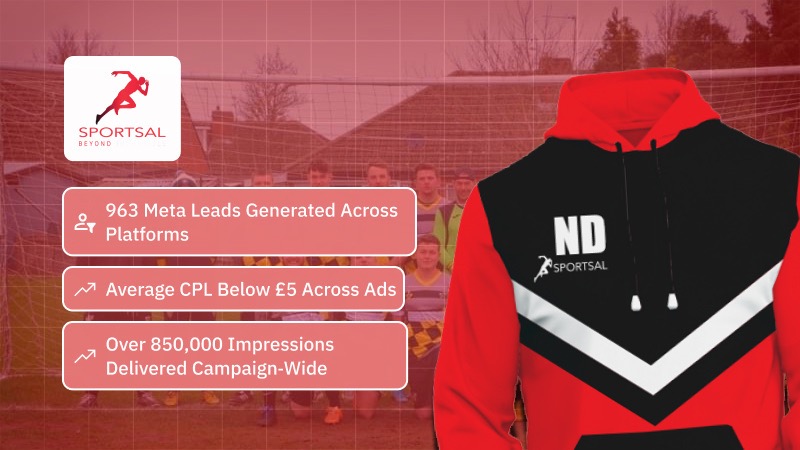Boost your site's performance—see how Soudcoh helps in Google Search Console today!

Google Search Console plays a crucial role in any successful SEO strategy. It's a free tool provided by Google that helps website owners monitor, maintain, and troubleshoot their site's presence in Google Search results.
By understanding and utilising Google Search Console, you gain valuable insights into how Google views your website. It provides detailed reports on things like crawl errors, mobile usability, and indexing status, allowing you to identify and fix issues that could impact your rankings. The platform also offers performance data, including clicks, impressions, and average position in search results, which can be instrumental in shaping your content and keyword planning.
One of its most powerful features is the ability to submit sitemaps and individual URLs for indexing. This ensures that new or updated content gets indexed more efficiently, potentially speeding up its appearance in search results. Additionally, Search Console alerts you to manual actions or penalties that may be affecting your site's visibility, giving you a chance to address problems early and avoid long-term SEO damage.
Google Search Console also sheds light on how users are arriving at your site, what search queries are leading them there, and how your pages are performing across devices and regions. This data-guided approach allows for smarter optimisation strategies, helping you better align your content with user intent and Google’s evolving algorithms. Ultimately, the insights it provides can mean the difference between a stagnant website and one that continually climbs the search rankings.
Tracking the right metrics is essential when using Google Search Console to improve your website's SEO performance. These data points help you measure progress, identify areas to optimise, and ultimately boost your rankings.
One of the most critical metrics to monitor is clicks. This shows how many users are visiting your site from Google Search results, giving you a concrete sense of your visibility. Alongside this, impressions reveal how often your pages appear in search results, which can help gauge your potential reach even if the click-through rate isn’t high yet. Speaking of which, CTR (click-through rate) connects the dots between impressions and clicks, offering insight into how compelling your snippets are to searchers.
Average position is another key metric, showing your general ranking standing across keywords. A closer look at this score over time can reveal whether your SEO efforts are making a tangible impact. Remember, small shifts in position—especially towards the top of page one—can lead to significant traffic increases. Additionally, tracking this metric by page or query allows you to identify strong performers and weaker links within your content strategy.
It's also important to focus on pages with declining performance. Drops in clicks or impressions might indicate technical issues, increased competition, or evolving search intent. Monitoring these metrics helps you react quickly and update content to remain competitive. Google Search Console offers this granular level of detail, making it easier to diagnose changes and plan future SEO tactics effectively.
Performance reports in Google Search Console offer valuable insights into how your content performs in organic search. By evaluating these reports, you can uncover what’s working well and where improvements are needed to boost your SEO rankings.
Start by analysing the queries your pages are ranking for. Look at the click-through rate (CTR), impressions, average position, and the actual clicks each keyword brings. By identifying high-impression, low-CTR queries, you can update your title tags or meta descriptions to better appeal to searchers. Similarly, content that ranks on the second page of results but has solid impressions might benefit from enhancements such as clearer headings, additional information, or strategic keyword placement to help it climb to page one.
It’s also wise to filter performance data by page to evaluate which content is drawing the most traffic and why. If certain topics consistently perform well, you can create more content around similar themes or enrich existing articles to further strengthen their reach. Conversely, underperforming pages can indicate gaps in keyword targeting, a mismatch with user intent, or issues with page speed or mobile usability—all of which GSC can help you investigate.
Regularly reviewing performance reports not only helps you refine current content but also informs your long-term content strategy. Using trends and historical data, you can anticipate seasonal shifts in user behaviour, identify rising keywords, and better align your future content with audience demand. Over time, this data-driven approach leads to smarter decisions that support steady SEO growth.
Technical issues can quietly erode your website’s search performance, even if your content is top-notch. Identifying and resolving these issues is vital to fully benefit from any SEO ranking boost shown in Google Search Console.
Common technical SEO problems include broken links, slow page load times, mobile usability errors, crawl issues, and improper use of canonical tags. These errors can hinder Google’s ability to access, index, and rank your pages effectively. Fortunately, Google Search Console provides detailed reports under sections like Page Experience, Core Web Vitals, and Coverage, which help highlight these pain points clearly.
When you notice a dip in impressions or rankings, start by examining the URL Inspection tool and Coverage reports. Often, these will point to specific pages that are excluded from indexing or have encountered crawl errors. By systematically addressing each problem—whether it's by fixing 404 errors, optimising site speed, or updating your robots.txt—you can restore and improve your site's visibility in search results.
It’s important to treat technical SEO as a continuous process, not just a one-off fix. Regular audits ensure your website maintains compliance with evolving search engine standards. Staying proactive with technical health not only enhances your chances of sustaining an SEO ranking boost but also improves user experience across your site.
When aiming to improve your SEO, Google Search Console (GSC) is one of the most effective tools for uncovering vital data about your site’s visibility and performance. Leveraging GSC insights properly can directly contribute to stronger rankings.
Start by monitoring the performance report to see which queries are driving traffic to your site and where your pages are ranking. You can identify high-impression keywords with low click-through rates and optimise meta titles and descriptions accordingly. Similarly, if you spot pages with declining positions, it’s a sign to review on-page SEO or content freshness. Targeting long-tail keywords from this data can also open new ranking opportunities with less competition.
Another best practice is analysing the ‘Coverage’ report frequently to ensure your pages are being indexed correctly and aren’t blocked by technical issues. Issues like crawl errors, mobile usability problems, and page experience warnings can all negatively impact visibility. By resolving these promptly, you ensure your content stands the best chance of ranking well. Make a habit of checking indexing status changes after publishing new or updated content.
Don’t overlook the value of linking insights within GSC. Reviewing internal and external links can reveal whether critical content is properly supported through your site architecture. Ensuring priority URLs have healthy internal linking signals can boost their SEO weight. Pair this with data from your core web vitals and page experience reports to maintain strong site performance over time.
Regularly export and track historical data to measure the impact of SEO changes made in response to GSC findings. This helps in understanding trends and evaluating strategy success. Treat Search Console not just as a diagnostic tool, but as a strategic compass guiding continual optimisation and content planning adjusted to how users are actually finding your site.
Whether local or global, we help your brand rise in search.


